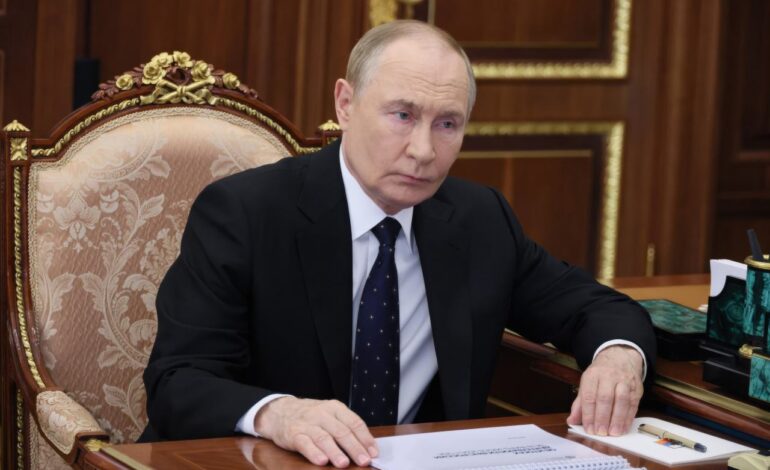Russia’s Struggle for Donetsk: Unpacking Putin’s Objectives

The ongoing conflict in Ukraine has seen Russian President Vladimir Putin intensifying efforts to seize full control of the Donetsk region. This strategic area has presented significant challenges for Russian forces, particularly due to its formidable defensive structures that hinder further military advancements.
The Donetsk region, part of Eastern Ukraine, has been a focal point of conflict since the onset of hostilities in 2014. Despite Russia’s military might, its troops have encountered a well-prepared Ukrainian defense that has proven resilient against repeated assaults. This defensive belt around Donetsk serves not only as a physical barrier but also as a symbol of Ukrainian resistance.
The Importance of Donetsk in the Conflict
The significance of Donetsk extends beyond mere geography. It is a historical and cultural hub for many Russian-speaking Ukrainians. Control over this region is crucial for Putin to solidify his narrative of protecting Russian speakers in Ukraine. Moreover, securing Donetsk would allow Russian forces to establish a land corridor to Crimea, which Russia annexed in 2014.
Military analysts suggest that the current Russian strategy may involve a combination of attrition warfare and attempts to encircle Ukrainian positions. Reports indicate that the Ukrainian Armed Forces have effectively utilized a combination of artillery, anti-tank systems, and fortified positions to repel attacks. The Ukrainian military’s ability to adapt and respond quickly has frustrated Russian plans and extended the conflict.
International Reactions and Implications
The struggle for Donetsk has drawn international attention, with NATO countries closely monitoring the situation. In response to Russia’s actions, several nations have increased military support to Ukraine. This includes advanced weaponry and training for Ukrainian troops, which has bolstered their defenses and operational capabilities.
As April 2024 unfolds, the geopolitical ramifications of the conflict continue to evolve. Western powers, alongside Ukraine, view the resistance in Donetsk as critical to preventing further Russian expansion in Eastern Europe. The outcome of this battle may significantly influence future diplomatic negotiations and the stability of the region.
The situation remains fluid, with both sides preparing for continued conflict. The determination of Ukraine to defend its territory against Russian incursions showcases the broader struggle for national sovereignty and territorial integrity. As military engagements persist, the international community watches closely, understanding that the fate of Donetsk could have lasting implications for the future of Ukraine and its relationship with Russia.






